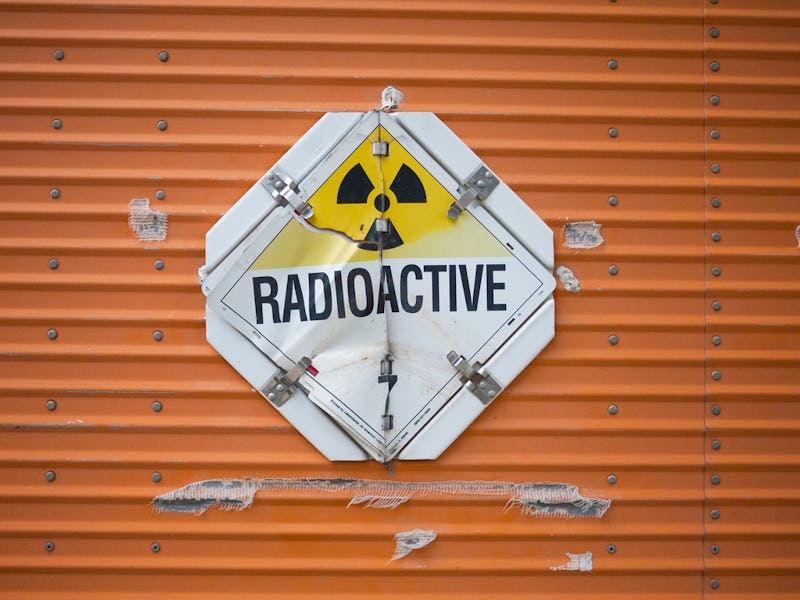Mexico Under High Alert After Theft of Radioactive Material
It's at least the eighth such robbery since 2013.

Seven states in Mexico were put on high alert for the theft of a nuclear densimeter from Guanajuato State on Thursday morning around 9 A.M.
The device was stolen out of the back of a truck owned by the local engineering firm Geogrupo del Centro.
Nuclear densimeters are devices used by engineers to measure soil density. They contain small amounts of the radioactive materials Americium-241, Beryllium, and Caesium-137, and are labeled as Category 4 dangerous.
The theft of nuclear densimeters in Mexico seems to occur with surprising frequency, with at least eight such incidents such 2013, as the AFP reported after a similar incident last year. There are fears that the materials could be used in a dirty bomb attack, especially given the drug violence that has wracked the country for years.
Ultimately, however, every single stolen densimeter in Mexico has been recovered with no harm — other than to the thefts.
In one robbery in 2013, a truck with Cobalt-60 was stolen, and the radioactive material was removed from its protective casing, which likely exposed the thieves to dangerous levels of radiation. While in that case, as well, authorities feared that the robbery was related to a terrorist attack, when they recovered the material, authorities realized that it was a more “innocent” crime gone wrong:
“”The vehicles are expensive because of the mechanisms to load and unload heavy material. That type of theft is very common in that area. That’s why we feel the people who did this have no idea what they stole,” said Mardonio Jimenez of Mexico’s National Nuclear Security Commission.
Besides, as a blog post in Scientific American argued in 2016, dirty bombs might be more frightening than truly deadly.
based on the 65 year Life Span Study of the survivors of atomic bomb explosions in Japan, that even at extraordinarily high doses, ionizing radiation only raises lifetime cancer mortality rates a little bit—just two thirds of one percent for survivors who were within three kilometers of ground zero. And despite popular belief, it causes no genetic damage that is passed on to future generations. At the low doses most people might get from a dirty bomb, the health risk is infinitesimal. Not zero, but tiny.